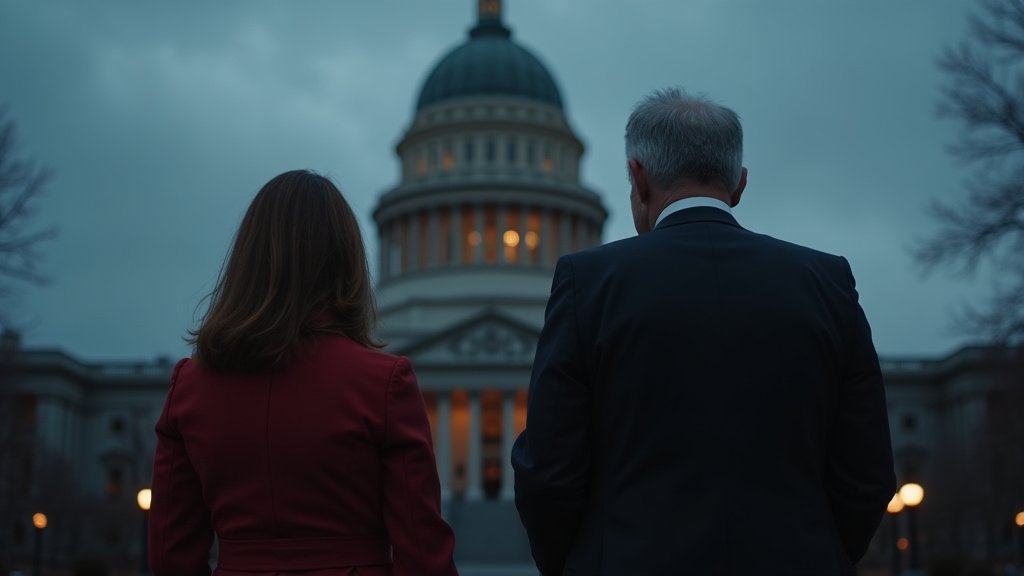Oregon’s ambitious proposal to overhaul its transportation infrastructure funding collapsed as the 2025 legislative session concluded Friday night, marking a significant setback for state Democrats who hold a supermajority. The failure of House Bill 2025, a cornerstone of the legislative agenda, deprives the state of nearly $12 billion in projected revenue over the next decade, funds intended for critical transportation projects and maintenance.
Understanding the Failed Measure
HB 2025 was designed to generate substantial revenue through a combination of increased taxes and fees on motorists. Key components included a rise in the state’s gas tax and adjustments to vehicle and registration fees. Proponents argued these measures were essential to address Oregon’s aging infrastructure, reduce congestion, and prepare for future transportation needs. The estimated $12 billion was earmarked for a wide array of projects, from highway improvements to public transit enhancements, across the state over the ten-year period.
Divisions Within the Majority
Despite the Democratic supermajority in both chambers, the bill encountered significant resistance, not only from the minority Republican party but also from crucial members within the Democratic ranks. This internal opposition proved decisive, ultimately derailing the legislation.
A prominent figure among the Democratic opponents was State Senator Mark Meek, who represents Gladstone. Senator Meek was a member of the Joint Committee on Transportation Reinvestment, a key committee tasked with shaping the legislation. His opposition became a focal point in the final weeks of the session.
Political Fallout and Committee Removal
The deep divisions over HB 2025 led to notable political repercussions. On June 20th, Senate President Rob Wagner, a Democrat representing Lake Oswego, removed Senator Meek from the Joint Committee on Transportation Reinvestment. This rare action underscored the intensity of the legislative battle and the leadership’s frustration with the lack of consensus, even within their own party.
Sources close to the negotiations indicated that Senator Meek’s stance was one of several factors contributing to the bill’s inability to garner sufficient support for passage. His removal from the influential committee highlighted the high stakes involved and the leadership’s attempt, albeit ultimately unsuccessful, to consolidate support.
Final Attempts and Abandonment
As the clock ticked down on the legislative session, Democratic leaders acknowledged the reality: they lacked the necessary votes to pass the comprehensive HB 2025 package. In a final attempt to salvage at least some funding and avert immediate consequences, proponents reportedly considered a scaled-back proposal. This effort centered on implementing a smaller, 3-cent gas tax increase.
The primary motivation behind this last-ditch effort was to prevent anticipated layoffs at the Oregon Department of Transportation (ODOT). Without the new revenue stream, ODOT faced difficult budget decisions that would impact staffing levels and potentially delay or halt essential maintenance work. However, even this reduced measure failed to gain traction or secure the required votes before the session concluded Friday night.
Looking Ahead
The failure of HB 2025 leaves Oregon’s transportation funding situation uncertain as the state heads into 2025. Addressing the state’s infrastructure needs remains a critical challenge, and the legislative session’s outcome means lawmakers will need to revisit the issue in future sessions.
Senator Mark Meek is expected to offer his perspective on the legislative outcome, including his reasons for opposing the transportation funding package and his views on the path forward. His insights are anticipated to shed further light on the complex dynamics that led to the collapse of this major legislative priority. The outcome underscores the challenges of forging consensus on complex fiscal issues, even within a dominant political party.




